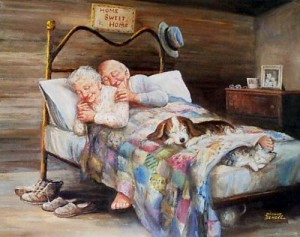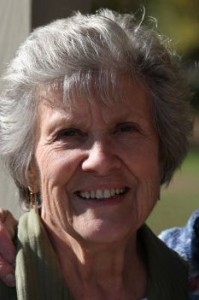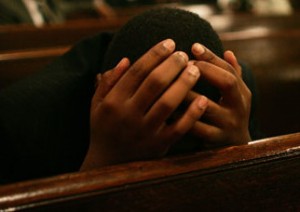Even on vacation, needs arise for routine errands to the grocery store, the airport or a gift shop. Today I was at the Sanibel post office to finish a few mailing tasks. When I walked back into the parking lot, without even thinking I went right up to a white Chrysler mini-van identical to the one I used to own. My clicker wouldn’t open the locks, of course, which let me know of my mistake. My red Highlander was the next car over but had failed to break the hold of “what used to be.”
All of us are creatures of habit. We find comfort in routine and like regularity in our schedules. Even children have a rut-like mentality that causes them to love a rut. For example, it’s taken all week for Skylar and Micah, ages 2 and 1, to adjust to their vacation home-away-from-home and to sleep past 5-something in the morning.
I’ve had trouble adjusting to Nate’s absence this week, because our Sanibel “habit” began with him in 1980 and continued many years after that. It was our routine, our tradition, the way it was meant to be. Being here without him includes a measure of emptiness and makes me wonder if we should even come back next year. Yesterday Linnea and I both got teary talking about it.
In the past year I’ve spoken with quite a few widows. No two stories are alike, but the one constant is a radical break in “the way we were.” To be married several decades is to come into a period of the relationship characterized by the word “comfortable.” The two of you have become one entity, and you both like it that way.
When death disturbs the routine, happy habits are forcefully broken. After a husband (or wife) dies, every life pattern changes, and adjustments never end. It’s like being in an airplane that’s been flying a straight course, when suddenly it begins doing loops, dives and spirals. It’s hard to get our bearings.
Death wasn’t God’s plan, and he never intended we’d have to adjust to it. Apparently he meant for Adam and Eve to continue forever in the perfection of Eden. But sinful choices deep-sixed that arrangement, bringing spiritual death immediately and physical death later on. The Eden routine surely must have been a hard habit to surrender.
After sin, the break from “the way they were” changed everything for Adam and Eve including their home, their neighborhood, their work and their walk with God. Separation. Division. Disconnection. The adjustments must have taken quite some time.
Old habits die hard. It was true back then and is true today. But Adam and Eve finally did adjust, and God stuck with them in their new life. That’s true for us today, too. As long as we live, change will yank us from our comfortable ruts and insist we adjust.
We see these disruptions as painful endings, but God views them as fresh beginnings. And he will help us.
“The Helper, the Holy Spirit, whom the Father will send in My name, He will teach you all things.” (John 14:26)



